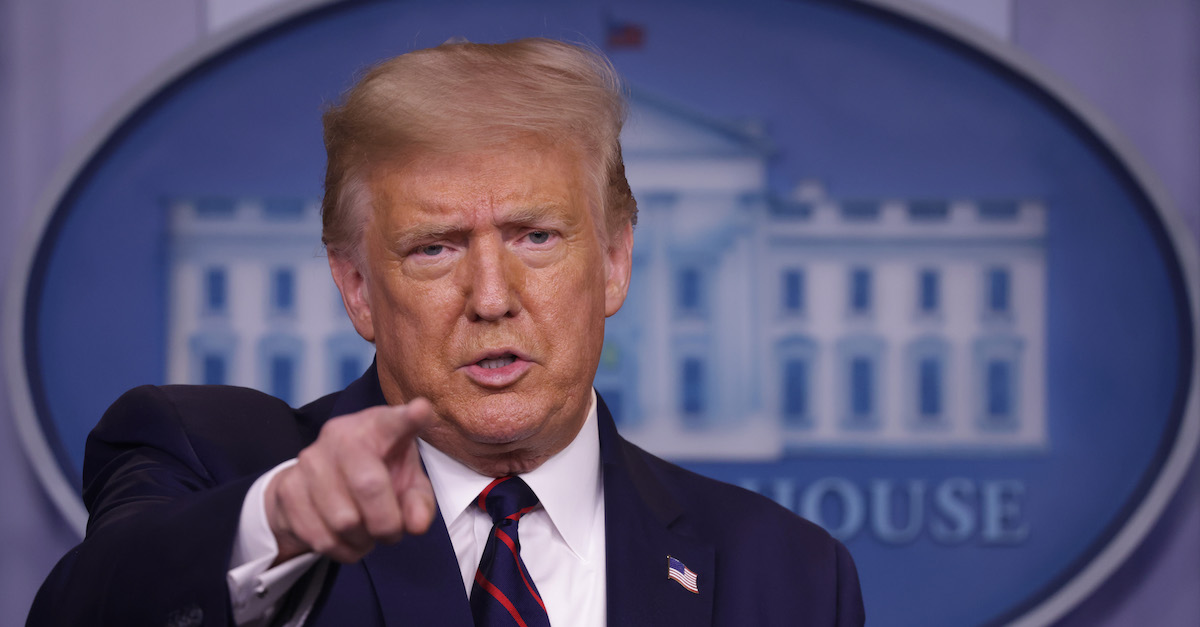
A lawsuit against the Obama administration over a Chinese-owned wind farm from eight years ago has a striking similarity to one announced Monday by social video-app TikTok. The outcome does not bode well for TikTok’s impending legal battle with the Trump administration.
TikTok announced that it was filing a lawsuit challenging President Donald Trump’s recent executive orders. In August, Trump issued two executive orders against ByteDance, the parent company that owns TikTok.
The first, which Law&Crime analyzed at length, bars any “transaction” with ByteDance or its subsidiaries, in which any such company has any interest, beginning 45 days after the order.
The second order mandated that ByteDance sell TikTok (or more specifically, Musical.ly, TikTok’s predecessor) to a U.S. owner within 90 days. The president’s authority for this order was based on the Exon-Florio Amendment of the Defense Production Act, which allows a president to invoke national security interests to order a foreign company to divest U.S. assets.
TikTok issued a press release Monday, explaining its reasoning for suing the Trump administration:
“The Executive Order issued by the Administration on August 6, 2020 has the potential to strip the rights of that community without any evidence to justify such an extreme action, and without any due process.”
TikTok would not be the first Chinese-owned company to do so in precisely this context. Like lawsuits that have come before, TikTok’s may buy some time, but isn’t likely to effect dramatic change to the outcome.
In 2012, President Barack Obama issued an executive order that required Ralls, a Chinese-owned company, to sell a wind farm valued over $6 million. The farm had been located close to an American military base in Oregon. Accordingly, Obama issued the “Order Regarding the Acquisition of Four U.S. Wind Farm Project Companies by Ralls Corporation,” which stated that “[t]here is credible evidence that leads [the President] to believe that Ralls might take action that threatens to impair the national security of the United States.” In an effort to “protect the national security in this matter,” the order directed Ralls to (among other things), divest itself of all interests in the farm and remove all items from the site.
Ralls sued, alleging that Obama’s EO was an unconsitiutional deprivation of Ralls’ property rights without due process. Ralls scored a meager victory in the lawsuit. A federal court ruled that it was indeed entitled to due process rights; those rights, however, amounted to a limited entitlement t0 access to information upon which the EO had been based.
The court wrote:
“[D]ue process requires, at the least, that an affected party be informed of the official action, be given access to the unclassified evidence on which the official actor relied and be afforded an opportunity to rebut that evidence.”
Rall did not, however, win any legal right to invalidate Obama’s order or to challenge its prohibition. In the end, Ralls still had to divest itself of the wind farm.
The outcome in the Ralls litigation is a likely harbinger of what’s to come for TikTok. TikTok might well be entitled to (non-classified) information underlying the Trump EO, or perhaps additional notice preceding Trump’s order. It will probably not, though, succeed in challenging the substance of Trump’s prohibition. Presidents have wide legal latitude on matters of national security, and courts generally do not second-guess executive authority in this arena.
While TikTok is unlikely to prevail on the merits of a legal challenge to Trump’s executive order, litigation may assist in causing a valuable delay. TikTok is reportedly in talks with Microsoft, Twitter, and Oracle to effectuate a transaction. A stay of the presidential orders may well result in lengthier negotiations and higher prices for TikTok.
[Image via Alex Wong/Getty Images]
This is an opinion piece. The views expressed in this article are those of just the author.